
Summary
Despite the decision by the United States to withdraw from the Paris Agreement on climate change, other countries are stepping up their efforts to combat climate change – as are businesses, including US corporations.
“The change in the US administration came as a shock, and we realised there had to be a reaction,” said Yvon Slingenberg, Director for Climate Negotiations and Mainstreaming at the European Commission Directorate-General for Climate Action. “Do we need to change our approach on implementation? The answer is definitely ‘yes’. But the difference after Paris is that it is not just the governments. It is other parts of civil society that also have become active.”
She was speaking at our Climate and Energy Summit in Brussels on 17 October. The event was held shortly after EU summits with both China and India, where the parties reaffirmed their commitments to fight global warming. China, which accounts for about 30% of global emissions, is pledging to invest $360bn in renewables over the next three years. What’s more, business is now more enthusiastic, as enterprises increasingly see the growth potential from green technology.
Encouragement came, in particular, from the 2015 adoption of the UN Sustainable Development Goals (SDGs), which aim to ensure prosperity for all by 2030 through sustainable, resilient growth. “There has been huge shift. More companies – big corporations and international companies – are embracing the SDGs,” said Richard Northcote, Chief Sustainability Officer at Covestro. “The SDGs have been a big factor in getting the private sector involved.”
However, despite the growth of renewables and Europe’s efforts to reduce the carbon footprint of the electricity sector, coal – the most carbon-intensive fuel – still accounts for nearly 80% of the EU power sector’s emissions. Luca Cosentino stressed that a clear policy signal is needed to support the phasing out of coal and the integration of renewables in a flexible electricity market. This is what the “Make Power Clean” campaign, pursued by a number of renewables, natural gas and manufacturing players is all about. This alliance supports the introduction of a carbon criterion (550 gr CO2/KWh) for capacity remuneration mechanisms in the ongoing revision of the market design rules, indicating a way to make sure that public funding does not end up subsidising the most polluting forms of power generation.
Part of the solution is using less energy. “Digital tools can provide a lot of solutions for the problems that we have,” said Kaja Kallas, Member of the European Parliament Committee on Industry, Research and Energy and European Young Leader (EYL40). “At the heart of all this are smart grids and meters. But Estonia is the only country in the world with 100% smart meters. In some European countries consumers get their bill once a year – so how can you make any decisions to save energy when you don’t know how much you are using?”
The EU Emissions Trading Scheme (ETS), launched in 2005, was an innovative idea to reduce greenhouse gas emissions. But its effect has been limited by an oversupply of emissions allowances, highlighting the difficulty in predicting future emissions in order to set allowances in such schemes.
Still, China is launching its own version of the scheme inspired by the EU one, and experts say such schemes have an important role to play in future, more than 40 initiatives are on the way.
Marcel Beukeboom, the Dutch Special Envoy for Climate Change; Rachel Solomon Williams, Managing Director at Sandbag; Anne Chassagnette from the ENGIE group as well as Claude Nahon from the EDF Group were also speaking at the event.
 Should you not be able to see the photo gallery, please click here.
Should you not be able to see the photo gallery, please click here.
About
Following the recent announcement by the United States of America that it will withdraw from the Paris Agreement, leaders around the world have reiterated their commitment to filling the void left by the USA, giving new life to the discussion on the transition to sustainable energy. This year’s edition of our flagship summit on Climate and Energy provides the perfect opportunity to re-examine the importance of strengthened European leadership, global cooperation and international governance to reinvigorate the shift to a green and resilient economy.
Further adaptation of European energy landscapes to facilitate the development of a market fit for fully-integrated and cost-effective renewables will require stronger incentives from both European governance and the private sector, in order to ensure effective consensus on appropriate policy mechanisms, such as reinforced emissions performance standards and an aligned price on carbon.
- Our partner Eni’s Sustainability report
- How to tell stories about energy: Eniday
Schedule
The United States has pulled out of the Paris agreement, and the rest of the world is eager to fill the void. It’s time for the energy transition to step up a gear to strengthen European leadership, global cooperation and international governance and move to a green and resilient economy.
Progress is being made. China, which accounts for about 30% of global emissions, is pledging to invest $360bn in renewables over the next three years. In 2014 more than half of all Latin America’s electricity came from renewables, more than double the world average. We will look at the importance of reinforced international public and private commitments to spur the clean energy revolution and provide high-level political will for ambitious, real-world policies and actions.
- In the run up to the Paris rulebook in 2018, how can we ensure countries turn objectives into ambitious policies and long-term decarbonisation plans?
- What extra economic and technological cooperation is needed between Europe and China to achieve climate and energy targets faster and more efficiently?
- Can new alliances strengthen the international community by helping national leaders meet common and individual climate targets?
- Can more be done with existing climate cooperation tools, such as the EU Energy Initiative Partnership Dialogue Facility?
- How can we improve the structure international discussions to engage the private sector in the global fight against climate change?
Speakers include
Marcel Beukeboom
Special Envoy for Climate Change at the Dutch Ministry for Infrastructure and Environment
Jill Duggan
Director of the Prince of Wales’ Corporate Leaders Group (CLG) at the Cambridge Institute for Sustainability Leadership, United Kingdom
Richard Northcote
Chief Sustainability Officer at Covestro
Yvon Slingenberg
Acting Director for Climate Strategy, Governance, and Emissions from Non-trading Sectors at the European Commission Directorate-General for Climate Action
Changhua Wu
Director for China and Asia at the Office of Jeremy Rifkin; and Chair of the China Redesign Hub
Moderator
Dharmendra Kanani
Chief Operating Officer and Chief Spokesperson of Friends of Europe
Despite Europe’s efforts to reduce the carbon footprint of the electricity sector, and the substantial growth of renewables, coal – the most carbon-intensive fuel – still accounts for nearly 80% of the EU power sector’s emissions and its share in the mix is virtually unaltered.
Europe’s role as a climate leader and the growth of intermittent renewables ask for an evolution of its energy mix towards greater flexibility and lower carbon emissions. The European Commission’s Clean Energy Package represents a historical turning opportunity to make the EU’s energy market ready for the future.
- How do EU leaders translate European objectives into ambitious national policy? And how do they reshape a market still primarily designed for fossil fuels?
- What policies are more effective in supporting the switch towards cleaner energy technologies?
- What is needed to support stable long-term investment in renewables beyond 2020?
- What will be the future for high-priority dispatch for renewables – and how can we ensure a level playing field for all energy sources while continuing to reduce emissions?
Speakers include
Edward Calthrop
Senior economist at the European Investment Bank (EIB) Renewable Energy Projects Directorate
Luca Cosentino
Executive Vice President for New Energy Solutions at ENI
Kaja Kallas
High Representative of the European Union for Foreign Affairs and Security Policy and Vice-President of the European Commission, former prime minister of Estonia, Trustee of Friends of Europe and 2017 European Young Leader (EYL40)
Patrick Labat
Senior Executive Vice-President for the Northern Europe Zone at Veolia
Moderator
Siobhan Hall
Senior Editor for EU energy policy at Platts
Average carbon prices in 2020 are likely to be almost nine per cent lower than forecasted in 2016. This makes it less attractive for stakeholders in the EU carbon market to invest in the technology needed to hit emissions targets.
At EU level, talks on the fourth phase of the Emissions Trading Scheme (ETS) continue, but with little consensus: effective change towards a European economy-wide carbon price requires more time. But in the run-up to major elections in Europe, the national level is stepping up: the recently-elected French President Emmanuel Macron put forward climate policies to raise the carbon price to €100 per tonne by 2030 – twenty times the current level.
- Can the EU ETS remain the main driver of decarbonisation of the EU economy?
- How can disruptive national leadership and a clear political vision reinforce European incentives on a strong carbon price signal? Can the French government’s actions inspire others towards change?
- What will the next phase of the ETS look like – and can a more coherent climate policy be implemented?
- How can EU leaders effectively agree on an aligned European pricing strategy on carbon while avoiding a massive phase-out of production means in the short term?
Speakers include
Anne Chassagnette
Group Head of Environmental and Social responsibility and Vice-Chair at the ‘Rassembleurs d’Énergies Fund’ at ENGIE
Claude Nahon
Senior Vice-President for Sustainable Development at EDF
Rachel Solomon Williams
Managing Director at Sandbag
Hans Van Steen
Acting Director for Renewables, Research & Innovation and Energy Efficiency at the European Commission Directorate General for Energy
Moderator
Dharmendra Kanani
Chief Operating Officer and Chief Spokesperson of Friends of Europe
Speakers
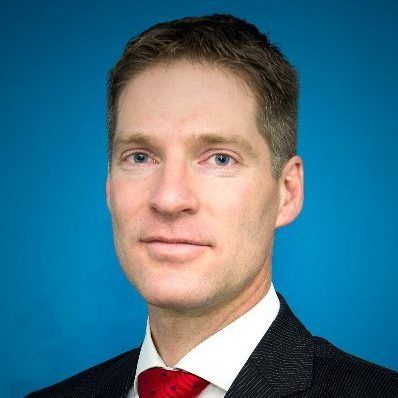
Special Envoy for Climate Change at the Dutch Ministry for Infrastructure and Environment
As Special Envoy for Climate Change, Marcel Beukeboom represents the Netherlands internationally at intergovernmental and multilateral meetings on climate change and oversees the development and implementation of Dutch policy in this area. He brings to the position excellent diplomatic skills and seventeen years of experience in trade policy, multilateral affairs, partnerships and development cooperation developed throughout his career in Dutch Foreign Service, including postings in Pretoria and Washington D.C. Most recently, Marcel led the Food and Nutrition Security team at the Ministry of Foreign Affairs.
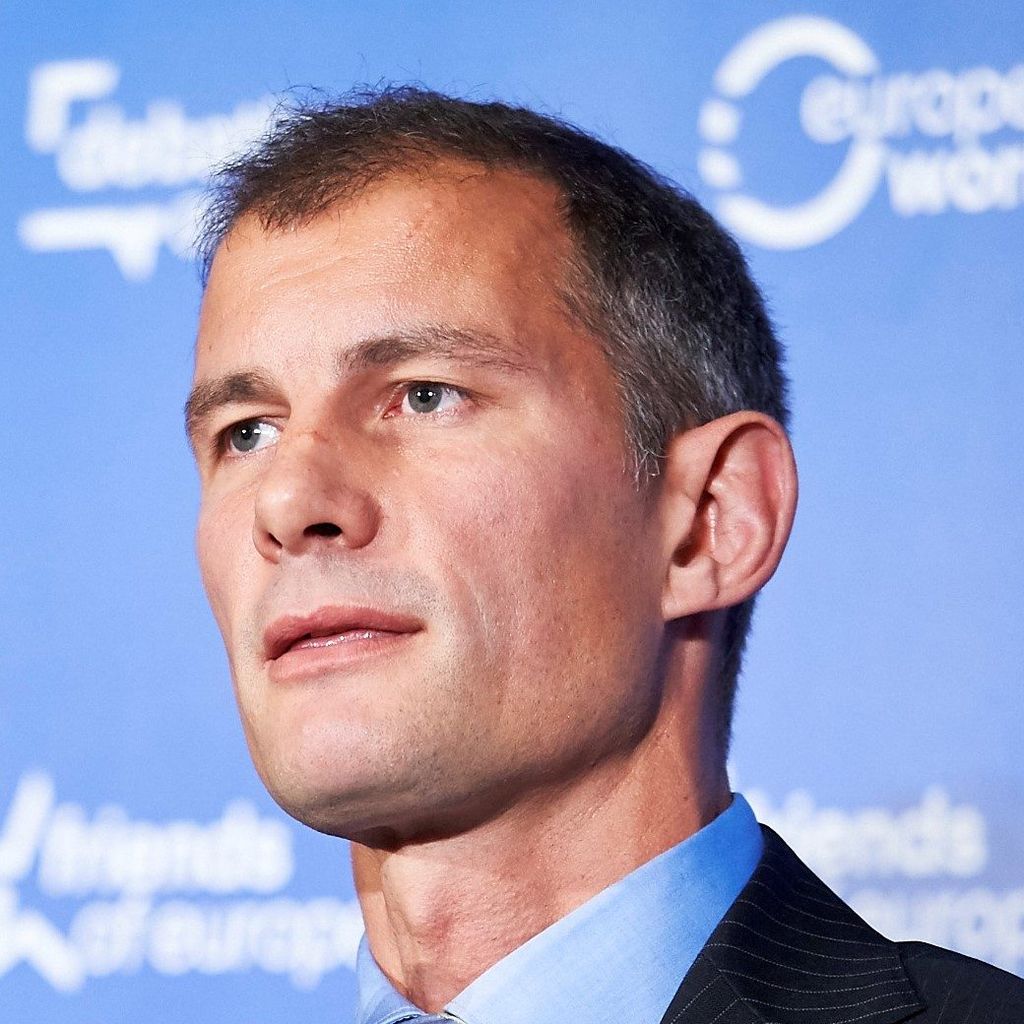
Senior economist at the European Investment Bank (EIB) Renewable Energy Projects Directorate
As an economist specialised in low-carbon infrastructure investment, Edward Calthrop has over ten years of experience at the European Investment Bank, largely within the renewable energy team. This role requires interacting with project developers, contractors and financiers across a wide range of technologies and countries. He also took part in several discussions with policy makers regarding the scaling up of low-carbon investment.

Group Head of Environmental and Social responsibility and Vice-Chair at the ‘Rassembleurs d’Énergies Fund’ at ENGIE
Anne Chassagnette is currently in charge of environmental and societal responsibility at ENGIE Group, a global energy player the fields of electricity generation, natural gas, nuclear and renewable energy. In recent years, she has specifically worked on coordinating the preparation of the COP 22. In addition to her responsibilities at ENGIE, Anne is a Board member of the Institute for Sustainable Development and International Relations (IDDRI), having previously sat on the Board of Directors at Elengy, French LNG terminal operator, and the Steering Committee of Global Compact France.
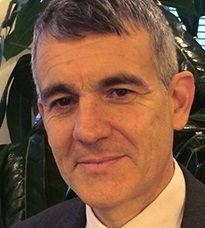
Executive Vice President for New Energy Solutions at ENI
Seasoned expert in energy transition to renewables, Luca Cosentino has held various operational positions in Italy and abroad since joining ENI more than three decades ago. Notably, he has served as Operation and Asset Manager at ENI North Africa, Managing Director of ENI Congo, and as Senior Vice Chairman for non-operated business performance and stranded resources valorisation, prior to his current appointment in 2015. Under his supervision, recently ENI together with several big-name companies launched the Make Power Clean campaign aimed at building a cleaner future through the right electricity market design.
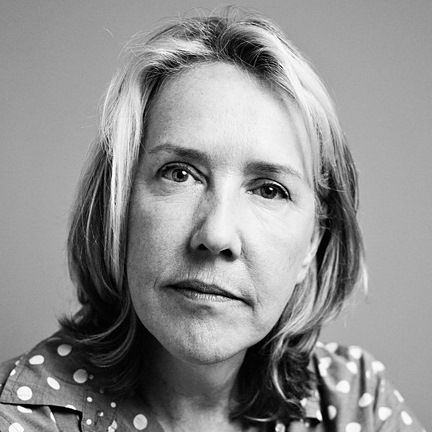
Director of the Prince of Wales’ Corporate Leaders Group (CLG) at the Cambridge Institute for Sustainability Leadership, United Kingdom
Jill Duggan brings with her extensive experience of international climate and energy policy from both government and industry perspectives. Having been deeply involved in the development of climate policy in the UK Government and European Commission, Jill has also worked extensively in the United States and Canada on disseminating some of the lessons learned from early implementation of climate policy. Prior to joining the Cambridge institute for Sustainability Leadership, she was Director of Policy for Doosan Babcock and ran her own consultancy, Carbon Policy Associates.

State Secretary at the German Federal Ministry for Economic Affairs and Climate Action
Patrick Graichen is the former executive director at Agora Energiewende, a think tank and policy laboratory developing scientifically based and politically feasible approaches for ensuring the success of the German energy transition. Patrick has an impressive commitment to the energy transition, having previously worked at the Federal Ministry for Environment, first in the area of international climate policy and later as Head of the Unit for energy and climate change policy. During this time, he head economic negotiations for EU and international treaties such as the Kyoto Protocol, the Integrated Energy and Climate Programme of the Federal Government, as well as the EU’s Climate and Energy Package.

High Representative of the European Union for Foreign Affairs and Security Policy and Vice-President of the European Commission, former prime minister of Estonia, Trustee of Friends of Europe and 2017 European Young Leader (EYL40)
As of January 2021, Kaja Kallas is Estonia’s first female Prime Minister. A competition lawyer by profession, Kaja was elected Member of the Estonian Parliament and Chair of the Committee on Economic Affairs in 2011. After being elected to the European Parliament in 2014, she became a prominent proponent of innovation and frequently emphasised that regulations should not hinder the technological revolution. She authored five reports in the European Parliament, including of an own-initiative report on the Digital Single Market. Kaja left the European sphere in 2018 to become leader of Estonia’s Liberal Reform Party.
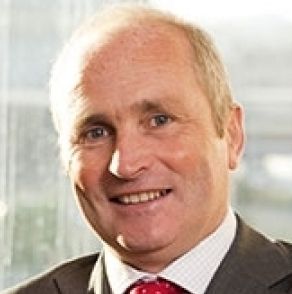
Senior Executive Vice-President for the Northern Europe Zone at Veolia
Currently Senior Executive Vice President for the Northern European Zone at Veolia, recognised as one of the world’s leading environmental services company, Patrick Labat also sits on the group’s executive committee, ensuring energy and environmental services for municipalities, industries and businesses. Veolia focuses on controlling energy costs and reducing carbon footprints through energy-efficient and customised solutions, notably the introduction of renewable fuels into the energy mix where it is viable. Prior to taking up his current assignment, Patrick served as CEO in other leading energy companies, such as Weiss France, Dalkia’s Polish and Hungarian branches.
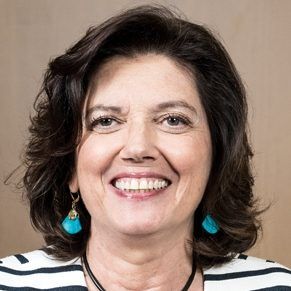
Senior Vice-President for Sustainable Development at EDF
Claude Nahon has been EDF’s Director of Sustainability and Environment for more than a decade, having previously served as Head for Hydro and Renewable energies. In her current capacity, Claude represents EDF Group on different occasions and at different institutions. Most notably, she is Liaison Delegate of EDF’s CEO at World Business Council for Sustainable Development, Vice-President of Institute for Sustainable Development and International Relations, and a member of the leadership council of the UN Sustainable Development Solutions Network. For her commitment to sustainable development and SDGs, Claude has been named a Knight of the Legion of Honour and an Officer of the National Order of Merit.
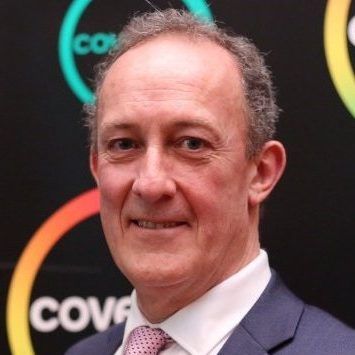
Chief Sustainability Officer at Covestro
Richard Northcote is a corporate sustainability professional and passionate advocate of the Triple Bottom Line (people, profit and planet) and the implementation of the Sustainable Development Goals, with a wealth of substantial consulting experience in the chemical and construction industries. In his current capacity, Richard covers all work related to sustainability, determined to lead ground-breaking innovations in the field of materials transformations and mitigation. In addition to his responsibilities at Covestro, Richard also sits on the Board of numerous leading research institutes, most notably Tongji University Institute of Environment for Sustainable Development and Oxford University Business Economics Programme, to name a few.

Acting Director for Climate Strategy, Governance, and Emissions from Non-trading Sectors at the European Commission Directorate-General for Climate Action
Yvon Slingenberg has extensively worked on EU climate action. She served as Senior Adviser to EU Commissioner Arias Cañete for Climate Action and Energy, where she was in charge of issues related to the EU Emissions Trading System (EU ETS), effort sharing and land-use, energy efficiency, and renewable energy sources. Slingenberg has been actively involved in the ETS reform, and the role of the ETS in the 2030 climate and energy policy framework. Slingenberg’s work also covered the negotiations on the 2020 climate and energy package, and steered the adoption of numerous implementing measures necessary to enable the harmonised approach of the revised ETS.
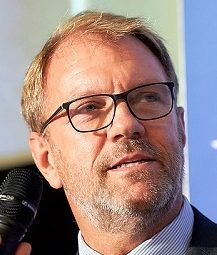
Acting Director for Renewables, Research & Innovation and Energy Efficiency at the European Commission Directorate General for Energy
An experienced professional in renewable energy support schemes, Hans van Steen currently works on providing secure, affordable and clean energy for EU citizens and businesses at the European Commission Directorate General for Energy. Prior to that, Hans served as Head of Unit with responsibilities for international energy relations and enlargement. In that capacity he was in charge of the implementation of the actions set out under the external dimension of the Energy Union Strategy.

Managing Director at Sandbag
In her present capacity, Rachel Solomon Williams oversees the organisational management and strategic policy direction at Sandbag, focused to ensure that climate policies are robust enough to drive rapid, sustainable and cost-effective emissions reductions, notably through reforming the Emissions Trading Schemes. Rachel is a former civil servant with particular expertise in energy and the environment. She worked in a number of policy areas across Defra and DECC, including as policy lead on the UK Climate Change Act, running the controversial review of the Feed-in Tariffs Scheme, and leading plans for siting a geological disposal facility for the nations legacy of nuclear waste.

Director for China and Asia at the Office of Jeremy Rifkin; and Chair of the China Redesign Hub
A leading expert in the field of China’s policy in climate change, environmental protection, green and climate financing, and technology innovation, Changhua Wu has been a strong voice and opinion maker of China’s pursuit of sustainable development and clean revolution in the last two decades. As China/Asia Region Director at Jeremy Rifkin’s Office, Changhua Wu currently works on advancing the Third Industrial Revolution agenda to create new growth drivers for a new and clean economy through a systemic change. Changhua also chairs China Redesign Hub, a partnership and innovation platform aimed at helping China to achieve its emissions reduction target, in addition to numerous other commitments.
Partners
Coorganized with
Activities
Climate and Energy Summit 2025
Next event In person & livestreamed

- Area of Expertise
- Climate, Energy & Natural Resources
European Oceans Pact: is maritime transport on board?
Past event In person & livestreamed

- Area of Expertise
- Climate, Energy & Natural Resources
Staying the course: driving sustainability forward in a shifting…
Past event In person & livestreamed

- Area of Expertise
- Climate, Energy & Natural Resources
Navigating risks and enhancing resilience: charting Europe’s energy and…
Past event In person & Livestreamed

- Area of Expertise
- Climate, Energy & Natural Resources
Adaptation without mitigation is nonsense
- Category
- #CriticalThinking
- Author
- By Heïdi Sevestre
Policy Voices | Overcoming Polarisation: can communities shape the green…
- Category
- Podcast
- Area of Expertise
- Climate, Energy & Natural Resources
Energy prices coming down – is Europe on the right track?
- Category
- #CriticalThinking
- Author
- By Andris Piebalgs
Europe’s blackouts call for a NATO-level response
- Category
- #CriticalThinking
- Author
- By Maurizio Geri
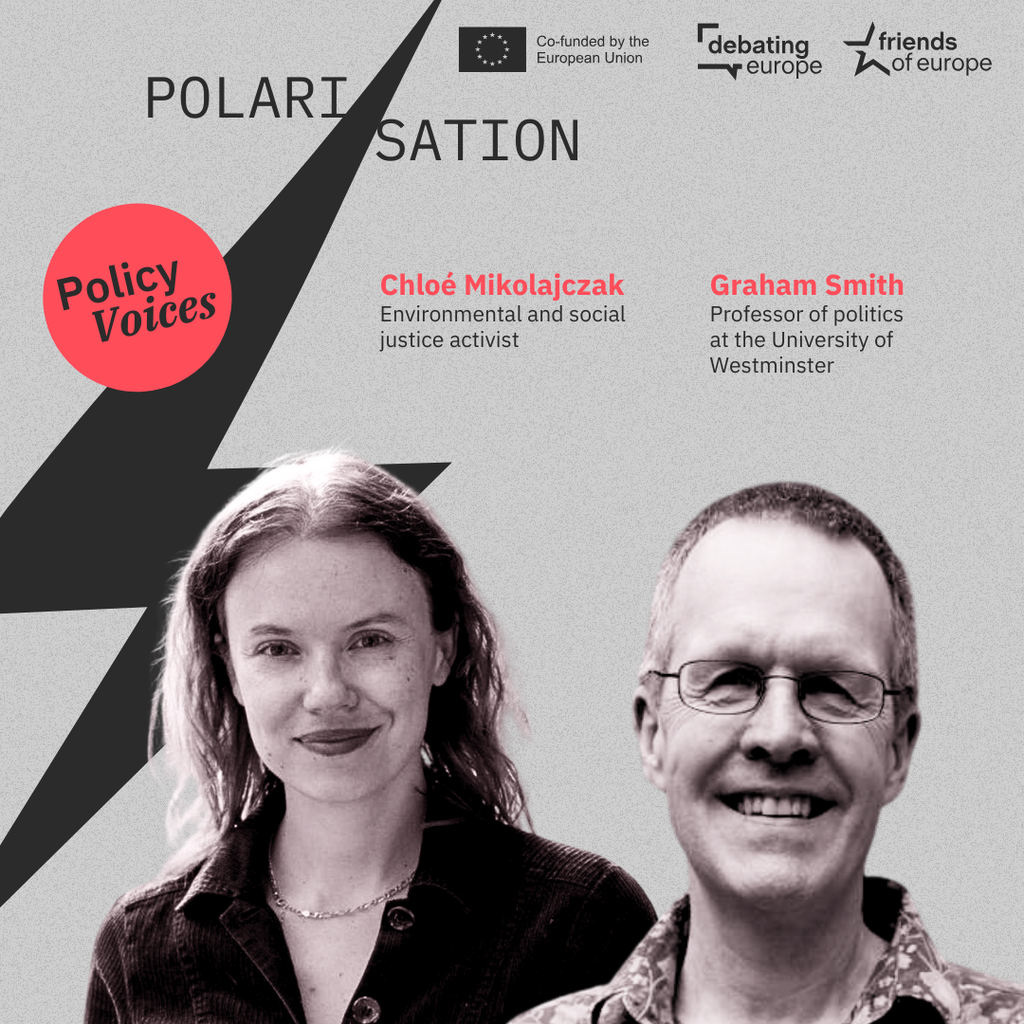
- Area of Expertise
- Climate, Energy & Natural Resources

- Area of Expertise
- Climate, Energy & Natural Resources

- Area of Expertise
- Climate, Energy & Natural Resources

- Area of Expertise
- Climate, Energy & Natural Resources
Continue
the debate on
- Debating Europe





